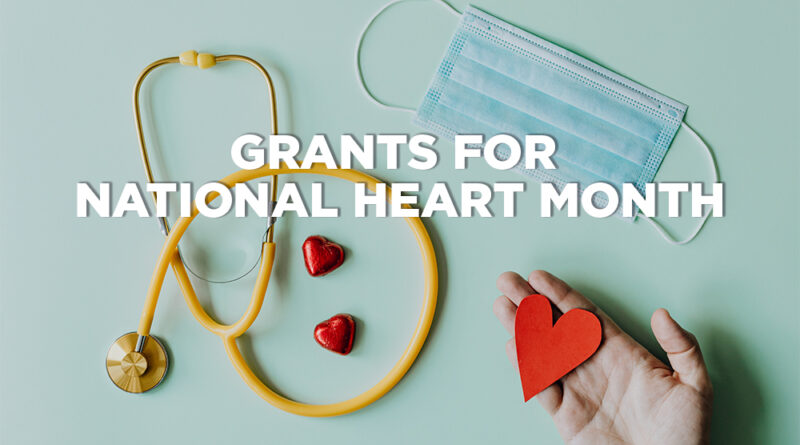February Is National Heart Month: Lower Your Risk for Heart Disease
February is National Heart Month, which makes it a necessary time to discuss the critical importance of heart health. Almost anyone can be at risk of heart disease, but there are several ways to lower this risk for most people. That’s why this month can be a great time to talk with family, friends, and loved ones about their potential risk factors and how to stay healthy. So let’s talk about how to recognize National Heart Month, and how we can all improve our health to live longer and better lives.
GrantWatch has a category specifically for health and medical grants on its site. And in honor of National Heart Month, GrantWatch is sharing some of these grants below to help organizations focused on assisting people in staying healthy.
Four Grants to Help with Heart Disease
- Grants to U.S. nonprofit organizations for health education programs and fundraisers related to cardiac diseases and treatments. Funding is intended to support activities and events that promote awareness among patients and the public alike, or that raise funds to benefit disadvantaged populations of the community.
- There are also grants available to U.S. medical institutions for medical fellowships. Funding is for programs in the areas of structural heart therapies, heart failure, electrophysiology, cardiac arrhythmia, and cardiovascular disease.
- In-kind donations to U.S., Canada, and International healthcare organizations for medical devices for patients in need. Organizations may request donations of specialty cardiac devices manufactured by the Funding Source for patients who have no other way to pay for the lifesaving products.
- In addition, there are grants to Nebraska nonprofit and for-profit health clinics to improve detection, treatment, and outcomes for patients with specific medical issues. Funding is to design and trial interventions that will improve health care for heart diseases, particularly in priority populations.
How to Celebrate National Heart Month
So, how can we all observe Nation Heart Month? Well, it starts by talking about the potential risk factors for heart disease. This can include things like genetics, but also lifestyle factors. Some of these factors include a poor diet, lack of exercise, alcohol consumption, and stress.
Here are a few ways to lower your risk of heart disease:
- Eat a healthy diet: Obviously this belongs at the top of the list because diet is an essential aspect of health. Eating a healthy diet can lower your risk for heart disease as well as a host of other diseases like obesity and type two diabetes. Diets that lower your cholesterol and blood pressure also help lower your risk for heart disease overall.
- Get regular exercise: There’s so many health benefits to exercise, including improving the overall strength of your heart. Exercising regularly can also lower your blood pressure, and help to lose weight, two key factors in heart health.
- Limit alcohol consumption: Drinking too much alcohol can have a major impact on your blood pressure. It also adds significant calories which can lead to weight gain.
- Don’t smoke: smoking can severely increase your risk of heart disease overall. Cigarettes can increase your risk of both heart attack and stroke, which can lead to death. Quitting smoking can lower your risk of heart disease.
- Manage stress: There are several links between stress and heart disease. Stress can raise your blood pressure, and extreme stress can trigger a heart attack. Also those who do not manage stress well, and use coping mechanisms such a unhealthy food and alcohol, can increase their risk of heart disease significantly.
GrantNews Notes
Also, make sure to give your organization the gift of GrantWatch in 2022! Signing up for a paid subscription to GrantWatch will help you to gain access to resources to aid in your grant journey. Specifically, one of the tools that subscribers have access to is the exact keyword search function. This tool allows grant seekers to narrow down a grant search.

